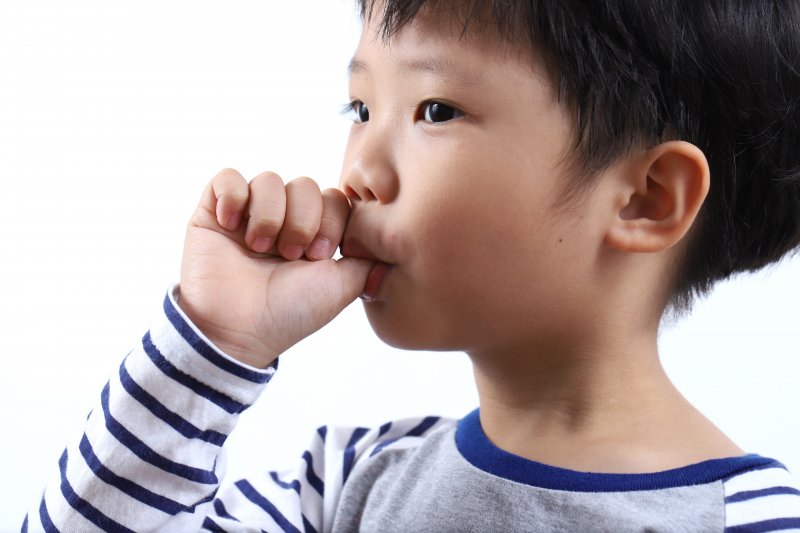
Does your child tend to suck their thumb when feeling scared, bored, or overwhelmed? While this is not an uncommon practice among toddlers, it can become a serious problem if it continues as your child grows. Although it might seem harmless, the reality is that this non-nutritive habit can create significant issues with oral and facial development if allowed to continue. If you want to learn how to stop thumb-sucking habits, here are 3 effective ways that will benefit your child.
Why is Thumb-Sucking a Bad Habit?
Thumb-sucking is not an abnormal or uncommon practice performed by babies and toddlers. The act of sucking is natural, especially for infants. Whether it is during feedings to receive the nutrition they need or by sucking on fingers or a pacifier, the reflex remains.
Although it is natural, it is also a preferred method for many children to self-soothe. When distressed, sucking their thumb or finger can help to calm them. However, the continued practice of thumb-sucking can have negative consequences if allowed to continue.
Not only can a child experience changes to their oral and facial shape because of the pulling of the thumb toward the upper row of teeth, but it can cause speech issues.
Most professionals as well as those with the American Academy of Pediatrics recommend that children stop sucking their fingers or thumbs by the age of 3. However, don’t be surprised if your child’s pediatric dentist prefers that the habit-breaking process begins by 18 months. The sweet spot is usually around 22 months of age if possible.
How Can You Help a Child Quit Sucking Their Thumb?
If you’re like many parents, finding a way to curb thumb-sucking can be a challenge. It might feel as if you’re losing the battle. But instead of giving up and hoping for the best, there are a few effective ways to help your little one kick the habit and move forward with better oral health. These include:
- Help them to keep their hands busy. By ensuring that they have something to play with that involves the use of their hands, they spend more time focused on the object and less on their thumb or finger. This can be especially helpful for children who suck their thumbs out of boredom.
- Create an award chart. If you set a time limit (i.e., 1 day, 3 days, 1 week) for your child to abide by, they can receive a sticker each time they do not suck their thumb. You can set the timeframe based on your child’s age and dependency.
- Offer your child praise. Children respond well to positive reinforcement and praise. This is why you should avoid the continual reminder to avoid sucking their thumb and instead, offer a high-five, hug, and encouragement when you notice they are doing their best to stop the habit.
Thumb-sucking doesn’t have to be an unbreakable habit. Using the tips provided, you can help your child take control of their actions and enjoy the benefits of a healthier smile.
About the Author
At Brush Pediatric Dentistry, Dr. Mira Albert leads a team of pediatric dentists who make it possible for little ones to achieve healthier smiles. Offering a fun and exciting environment filled with kid-friendly amenities, we believe in helping children become enthusiastic about oral hygiene while keeping parents informed of ways they can work to improve and help their children maintain healthier teeth and gums at home. We also offer helpful tips and tricks to minimize and eliminate non-nutritive habits. If your child needs help to stop sucking their thumb, contact us at (630) 504-2223.
